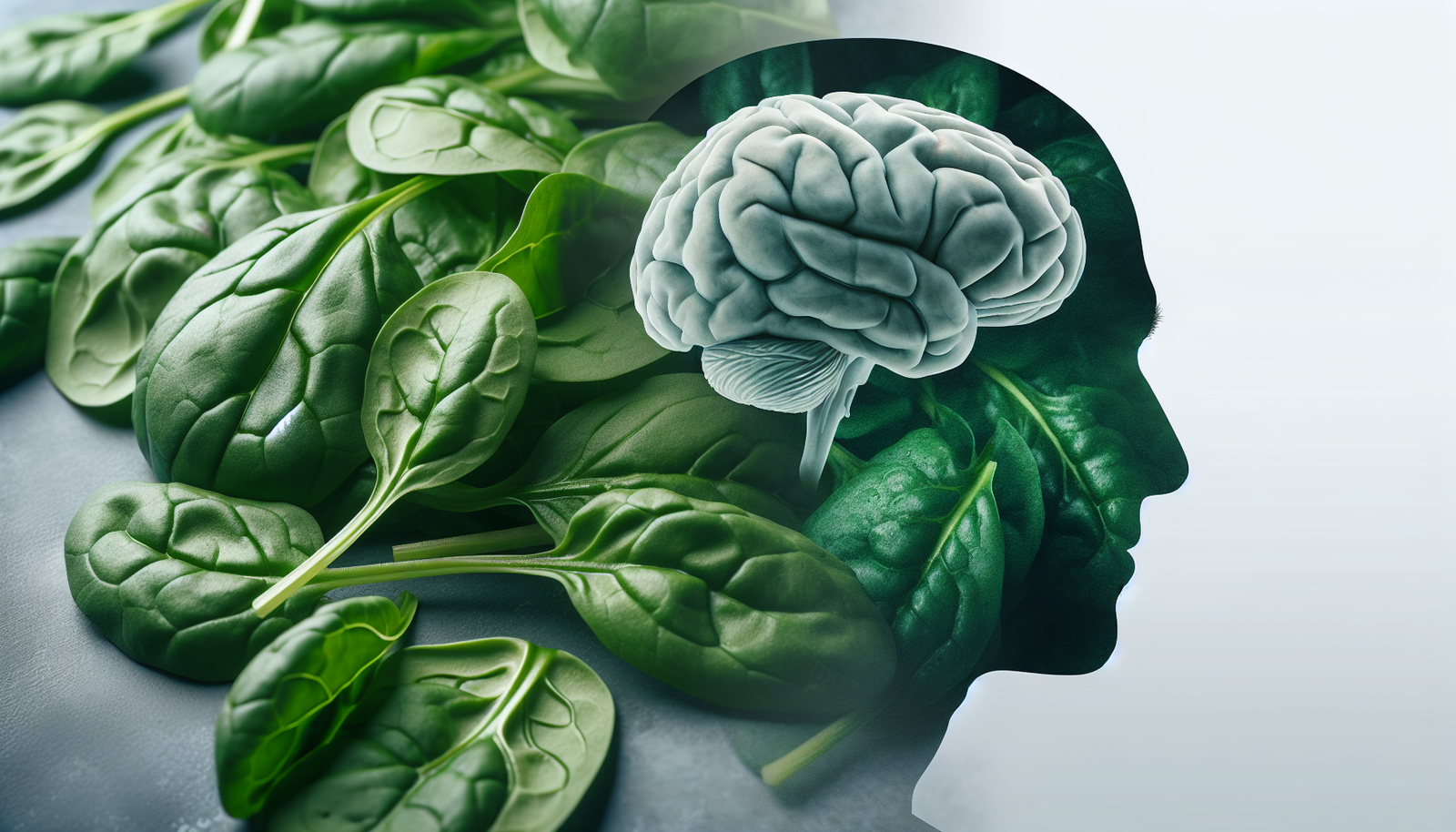Have you ever wondered if the foods you eat can affect your brain health? It turns out, the role of certain dietary compounds like oxalates in conditions such as Alzheimer’s and dementia is gaining attention. Let’s take a closer look at this intriguing connection and what it might mean for you.
What Are Oxalates?
Oxalates, or oxalic acid, are organic compounds found naturally in many foods, including leafy greens, nuts, seeds, and certain fruits. Your body produces oxalates as well, but they can also come from your diet. These compounds can bind with minerals like calcium, potentially forming crystals that may cause health issues, particularly concerning kidney stones.
In a typical healthy individual, oxalates may not cause much trouble. However, if you’re sensitive to them or consume high amounts, you might have to take a second look at what you’re eating. Many people don’t realize that oxalates are part of the dietary landscape, and their effects can vary widely depending on how much you consume.
Where Are Oxalates Found?
You might find oxalates in various foods, and knowing which ones to watch can make a significant difference in your daily choices. Here’s a handy table identifying both high-oxalate and low-oxalate foods:
| High-Oxalate Foods | Low-Oxalate Foods |
|---|---|
| Spinach | Kale |
| Rhubarb | Broccoli |
| Beets | Cabbage |
| Nuts (especially almonds) | Most meats and fish |
| Chocolate | Eggs |
| Dark leafy greens (Swiss chard) | Cucumbers |
If you’re not careful with your intake, those high-oxalate foods can add up. Balancing your meals with low-oxalate options might be wise, especially if you’re concerned about oxalate-related health issues.
The Brain and Dietary Impacts
Your diet plays a crucial role in how your brain functions. What you eat can influence various aspects of brain health, including mood, cognitive performance, and even the risk of neurodegenerative diseases like Alzheimer’s and dementia.
Understanding the link between diet and brain health is essential for making informed choices. Research indicates that certain nutrients can support cognitive function, while others might contribute to deterioration. In this context, you might be asking: where do oxalates fit in?
Alzheimer’s Disease: What You Should Know
Alzheimer’s disease is a progressive neurodegenerative disorder characterized by memory loss, confusion, and other cognitive difficulties. It affects millions of people worldwide, and while the exact cause remains unclear, several risk factors have been identified, including genetics, environmental factors, and lifestyle choices. Particularly, neuroinflammation and oxidative stress have gained attention in the context of Alzheimer’s disease.
But how do oxalates connect to this complex picture?
Oxalates and Neuroinflammation
Recent studies suggest that oxalates might have a role in neuroinflammation. Neuroinflammation refers to an inflammatory response in the brain, which can lead to neuronal damage over time. Some research indicates that oxalates could promote inflammation, though this area is still being explored.
The theory goes that diets high in oxalates may contribute to increased inflammation in the brain, potentially aggravating or accelerating neurodegenerative processes. More studies are needed, but it’s worth considering how dietary oxalates might be linked to chronic inflammation in conditions like Alzheimer’s.
Is There a Connection Between Oxalates and Cognitive Decline?
While the direct link between oxalates and cognitive decline remains an area of active research, there are a few ways to think about their potential impact.
Oxalates and Brain Health
High levels of oxalates in the body can lead to health issues beyond just kidney stones. When the body has difficulty processing oxalates, it may contribute to the formation of oxalate crystals in various tissues, possibly leading to inflammation or other complications.
This is where you should consider your dietary habits. If you’re consuming more high-oxalate foods and experiencing symptoms like joint pain or kidney issues, it might be worth paying attention to the more subtle signs related to cognitive function.
Existing Research
A few studies have hinted at a potential connection between oxalates and cognitive health. For instance, some animal studies indicate that dietary oxalates might impact how their brains react to oxidative stress. However, translating these findings directly to humans is complex.
In clinical research, specific data on oxalates’ direct effects on Alzheimer’s or dementia is sparse, but the intertwined relationship between diet and cognition cannot be dismissed entirely.
Should You Eliminate Oxalates?
Deciding whether to cut oxalates from your diet depends on several factors, including your overall health, existing conditions, and dietary preferences. If you’ve experienced issues related to oxalate consumption, consulting a healthcare professional or nutritionist can provide personalized guidance.
Balancing Your Diet
It’s essential to maintain a balanced diet rich in nutrients that support brain health. Instead of completely eliminating foods high in oxalates, consider moderation and variety. Here are a few things to keep in mind:
- Practice moderation: If you enjoy spinach or almonds, there’s no need to give them up entirely. Just be mindful of portion sizes.
- Incorporate Calcium: Calcium can bind with oxalates in the gut, preventing absorption. Including calcium-rich foods alongside oxalate-containing ones may help mitigate any potential negative effects.
- Emphasize antioxidant-rich foods: Foods high in antioxidants, like berries and fish, can combat oxidative stress and inflammation, potentially benefiting brain health.
Nutritional Strategies for Cognitive Health
When it comes to supporting your brain health, a holistic approach that goes beyond merely addressing oxalate consumption could be beneficial.
Focus on a Mediterranean Diet
Research shows that the Mediterranean diet, rich in fruits, vegetables, whole grains, fish, and healthy fats, is associated with better cognitive health. Consider incorporating elements of this dietary pattern into your meals:
- Fruits and Vegetables: A variety of colorful fruits and vegetables can provide essential nutrients and antioxidants.
- Healthy Fats: Foods rich in omega-3 fatty acids, like fish and nuts, have been linked to lower risks of cognitive decline.
- Whole Grains: Foods like quinoa and brown rice are beneficial sources of fiber and nutrients.
Stay Hydrated
Don’t overlook the importance of hydration for brain health. Proper hydration is crucial for cognitive function. Aim for water as your primary beverage, and incorporate hydrating foods like cucumbers, oranges, and watermelons into your diet.
The Future of Oxalates and Cognitive Health Research
As you consider the relationship between oxalates and conditions like Alzheimer’s, it’s vital to understand that research is ongoing. Scientists are continually exploring how dietary factors, including oxalates, might influence brain health.
What’s on the Horizon?
Future studies may help clarify how oxalates relate to cognitive decline, particularly in vulnerable populations or those with existing health conditions. As the understanding of this relationship expands, so too may dietary recommendations.
Staying Informed
Keeping tabs on emerging research can empower you to make informed decisions about your diet and brain health. As new studies come out, remember that dietary needs can be incredibly personal. What works best for you might require some adjustments along the way.
Conclusion: A Balanced View
It’s easy to get caught up in the latest nutritional trends, especially with complex topics like oxalates and their potential impact on brain health. A nuanced approach is essential—while it’s helpful to be aware of oxalates in your diet, don’t let this singular focus overshadow other critical elements that contribute to cognitive health.
Prioritize a well-rounded diet, manage stress, engage in regular physical activity, and cultivate social connections. All these aspects play a crucial role in maintaining cognitive function and mitigating the risks associated with conditions like Alzheimer’s and dementia.
As you move forward, keep asking questions. What role do you want your diet to play in your brain health? Taking charge of your food choices today can pave the way for a healthier tomorrow.




